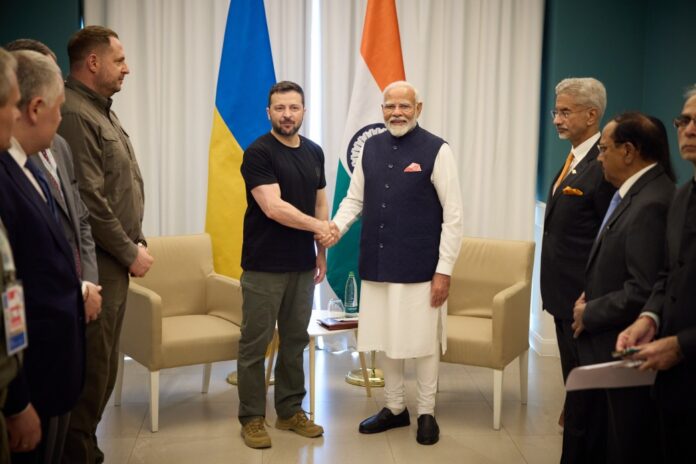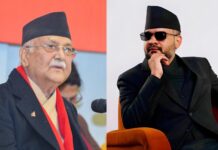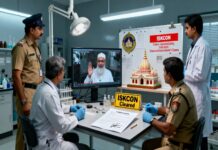In the middle of the escalating conflict in the Russia-Ukraine war, which displays no indications of imminent resolution. The pervasive destruction and fatalities persist, although both factions remain resolute in their determination to continue the struggle, as for Ukraine, it’s their existence at stake, while Russia’s sense of national honor is on the line. Amidst this geopolitical conundrum, India is uniquely positioned to act as a mediator between Moscow and Washington and help resolve the Ukraine issue.
Prime Minister Narendra Modi, ahead of his landmark Ukraine visit, on Wednesday said India is a supporter of peace in the volatile region as he reiterated “this is not an era of war” and any conflict should be resolved through diplomacy and dialogue. This statement comes ahead of his trip to Kyiv – the first visit by an Indian prime minister to Ukraine since the country became independent in 1991.
PM Modi, who is visiting Ukraine at the invitation of President Volodymyr Zelensky, expressed his intention to discuss with the Ukrainian leader various viewpoints on achieving a peaceful conclusion to the continuing conflict. Modi will visit Ukraine around six weeks after his prominent visit to Russia, which elicited criticism from the United States and its Western partners.
Modi’s visit to Ukraine on National Flag Day is a significant milestone for an Indian prime leader and offers India a distinct chance to pursue strategic collaboration and partnership with Ukraine, specifically in the field of defense manufacturing.This will be a mutually beneficial outcome for both countries, as India requires marine engines for its naval vessels and seeks to enhance its extensive air transport fleet and technology, specifically in the area of propulsion. Ukraine recognizes that collaborating with India will generate essential funds for its defense enterprises, which are facing financial difficulties and are greatly affected by the conflict with Russia. Russia has conducted airstrikes on the Antonov Serial Production Plant in Kyiv and the Zorya-Mashproekt complex in Mykolaiv, which are important defense facilities in Ukraine.
The Indian Air Force’s (IAF) extensive fleet of An-32 military transports, which was scheduled for an upgrade as part of a contract signed in 2009, has been significantly affected. The Antonov facility manufactures the model. The arrangement entailed the enhancement of 40 aircraft in Ukraine and an additional 65 in India, with Ukrainian oversight. The ongoing war has disrupted the supply chain, resulting in the delay of upgrading the last five out of the 40 aircraft in Ukraine. These aircraft are currently unable to move from Kyiv. Additionally, the local upgrade in India has been halted due to the departure of Ukrainian experts and a shortage of necessary spare parts.The Zorya-Mashproekt complex in Mykolaiv is crucial for the manufacturing of turbines that are utilized by navies around the globe, including the Indian navy. The current conflict has further intensified these difficulties, as it has severely impaired their ability to function effectively. The impact on Zorya-Mashproekt is particularly significant for India, which relies on these turbines for its naval vessels.
Considering these disruptions, Modi’s trip to Kyiv presents a crucial opportunity for India to explore new opportunities and potential for cooperation with Ukraine. An area of possible collaboration involves the formation of joint ventures in India, where Ukrainian technicians might collaborate with Indian counterparts to create manufacturing units. Bharat Forge’s recent purchase of a majority ownership (51%) in Zorya’s Indian subsidiary has the potential to serve as a basis for a partnership between the two companies.
The Indian government has consistently advocated for dialogue and diplomacy as the preferred approach to address the problem. The Ministry of External Affairs has restated that India’s interactions with both Ukraine and Russia are autonomous and substantial, and not a situation where one country’s gain is another country’s loss. This subtle and sophisticated approach is likely to shape the discussions in Kyiv, where Modi is anticipated to have a meeting with President Volodymyr Zelenskyy.
By leveraging this official visit to establish strategic alliances in defense manufacture and participate in a forthright discussion about the ongoing conflict, India can establish itself as a significant participant in defining the future of the area. Modi is expected to express appreciation to the Ukrainian government for their assistance in evacuating Indian students during the outbreak of the war. Prior to the commencement of the large-scale conflict in Ukraine, India had approximately 19,000 students who were actively pursuing their education in Ukrainian universities. After the Russian invasion in February 2022, India, Ukraine, and Poland collaborated to evacuate a majority of the affected individuals in a coordinated effort known as “Operation Ganga”.
Adding to the complexity of the geopolitical calculus, the United States and other Western nations are displeased with Modi’s favorable attitude towards Russia and his meeting with Putin. Nevertheless, the Western countries are also keen on preserving India’s influence in Moscow, as India may potentially act as a strategic counterweight to China in influencing the Kremlin.
Although India maintains a cordial relationship with the US, there are subtle currents of distrust present. The visit to Ukraine will also function as a means to mitigate any negative perception. India maintains strong diplomatic relations with Russia, but it is also cautious about not distancing itself from the Western countries. Ministry of External Affairs, India, has stated that New Delhi has no intention of presenting a peace plan in Kyiv. However, India is prepared to provide assistance in facilitating the discussion of a peace deal. The discussion will also cover defense and economic cooperation, as well as India’s role in the future reconstruction of post-war Ukraine.
The author is a geopolitical analyst and a doctoral candidate at the centre of Canadian, US and Latin American Studies at Jawaharlal Nehru University.
[Originally Written by : Rashi Randev ] She can be contacted at rashi.randev@hotmail.com ]





